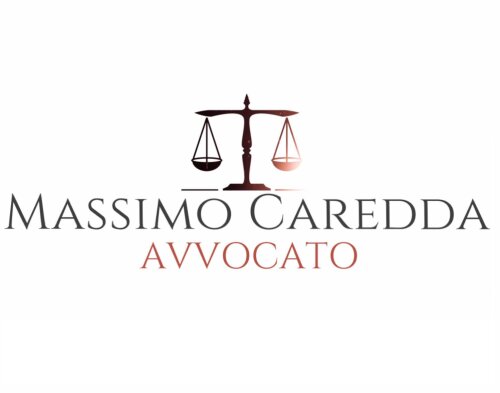Best Disability Lawyers in Italy
Share your needs with us, get contacted by law firms.
Free. Takes 2 min.
Or refine your search by selecting a city:
List of the best lawyers in Italy
About Disability Law in Italy
Disability law in Italy is designed to ensure that people with disabilities have equal access to opportunities and resources. The government recognizes the importance of acknowledging and supporting individuals with disabilities, aiming to create a more inclusive society. Various laws and regulations exist to guarantee the rights of disabled individuals in employment, education, healthcare, and accessibility to public spaces.
Why You May Need a Lawyer
There are several situations where you might need legal assistance regarding disability matters in Italy. These can include disputes over disability benefits or pensions, issues related to workplace accommodations, difficulties accessing healthcare services, or challenges in accessing public services and spaces. A lawyer can help navigate these situations, ensuring that your rights are upheld and that you receive any entitlements due under Italian law.
Local Laws Overview
Italian disability law is grounded in the principles of the Constitution, which mandates the removal of economic and social obstacles that limit freedom and equality. Some key laws include:
- Law No. 104/1992: This law provides comprehensive protection and rights for people with disabilities, including measures promoting social inclusion and support for families.
- Law No. 68/1999: This legislation focuses on the employment inclusion of disabled persons, providing incentives for employers to hire individuals with disabilities.
- Decree No. 151/2015: Introduces additional provisions around job protection and offers tax benefits for companies employing people with disabilities.
Understanding these and other regulations can help individuals ensure their rights are protected and assert claims for necessary support and resources.
Frequently Asked Questions
What rights do disabled people have in Italy?
Disabled individuals in Italy have rights related to healthcare access, education, employment opportunities, and social services. The government also ensures infrastructure and resources are available to enhance their quality of life.
How can I apply for disability benefits in Italy?
You can apply for disability benefits through the National Institute of Social Security (INPS). The process typically involves submitting medical documentation and other forms to verify your disability status.
What support is available for parents of disabled children in Italy?
Parents of disabled children can access various support services, including financial assistance, specialized educational programs, and family support services to help with the child’s care and development.
How are workplaces required to accommodate employees with disabilities?
Italian law requires employers to make reasonable accommodations for employees with disabilities. This may include modifying workspaces, providing specialized equipment, or adjusting work schedules as necessary.
What should I do if I face discrimination due to my disability?
If you experience discrimination, it's advisable to contact a lawyer specializing in disability law. You can also report the discrimination to relevant authorities or watchdog organizations.
Are buildings and public spaces required to be accessible in Italy?
Yes, Italian regulations mandate that public and many private buildings ensure accessibility for people with disabilities, including ramps, elevators, and accessible restrooms.
Can I get legal aid for disability issues?
Individuals facing financial difficulties may qualify for legal aid in Italy. This aid can help cover the costs of obtaining legal representation or advice for disability-related issues.
What employment opportunities are available for disabled individuals?
There are various employment opportunities, often supported by governmental incentives for businesses to hire individuals with disabilities. Resources such as job placement services can also assist in finding suitable work.
Is there a quota system for hiring disabled persons in Italy?
Yes, businesses of a certain size must adhere to quotas mandating a specific percentage of their workforce be composed of individuals with disabilities.
What is the role of INPS concerning disabilities?
INPS is the main body responsible for administering disability benefits, assessments, and pensions in Italy. They play a crucial role in distributing support and ensuring compliance with disability laws.
Additional Resources
Several resources can assist individuals needing legal help related to disability in Italy:
- INPS: The National Institute of Social Security is responsible for disability assessments and benefits.
- ANMIC: The National Association of Civil Disabled and Invalids provides support and resources for disabled persons.
- Ministry of Labor and Social Policies: Offers information on employment rights and services for individuals with disabilities.
Next Steps
If you need legal assistance concerning disability laws in Italy, consider the following steps:
- Identify your specific legal needs and gather relevant documentation.
- Contact a lawyer specializing in disability law. You can find one through legal directories or by seeking recommendations from organizations that support disabled individuals.
- Prepare to discuss your situation in detail with your lawyer to explore options and actions you can take.
- Ensure you understand any legal advice provided and the potential costs involved in proceeding with your case.
Having a knowledgeable, supportive legal advisor can significantly impact successfully navigating Italy's disability laws and obtaining the appropriate support and resources.
Lawzana helps you find the best lawyers and law firms in Italy through a curated and pre-screened list of qualified legal professionals. Our platform offers rankings and detailed profiles of attorneys and law firms, allowing you to compare based on practice areas, including Disability, experience, and client feedback.
Each profile includes a description of the firm's areas of practice, client reviews, team members and partners, year of establishment, spoken languages, office locations, contact information, social media presence, and any published articles or resources. Most firms on our platform speak English and are experienced in both local and international legal matters.
Get a quote from top-rated law firms in Italy — quickly, securely, and without unnecessary hassle.
Disclaimer:
The information provided on this page is for general informational purposes only and does not constitute legal advice. While we strive to ensure the accuracy and relevance of the content, legal information may change over time, and interpretations of the law can vary. You should always consult with a qualified legal professional for advice specific to your situation.
We disclaim all liability for actions taken or not taken based on the content of this page. If you believe any information is incorrect or outdated, please contact us, and we will review and update it where appropriate.
Browse disability law firms by city in Italy
Refine your search by selecting a city.














